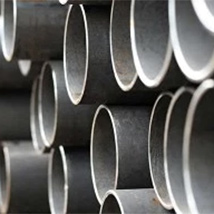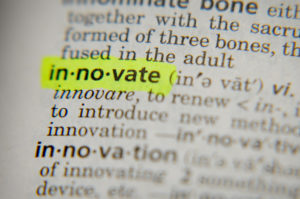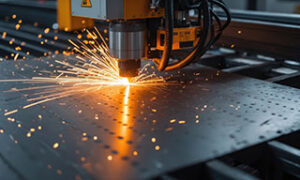ERP marks a big step forward for companies seeking more integration, automation, customization, and productivity. It is foundation software located at the heart of steel and metal fabrication businesses, and it helps them to stay competitive and relevant while driving the business forward.
But what is ERP, how does it work, what are the pros and cons of using it, and who can benefit from an ERP integration?
What Does ERP Mean?
ERP stands for Enterprise Resource Planning. It’s a type of software system that organizations in various industries use to manage business practices, including those related to inventory, production, accounting, supply chains, and customer acquisition.
ERP systems are advanced and comprehensive. More importantly, they are tailored to meet the needs of the organization and can incorporate various elements, practices, and departments into a single source, thus avoiding data duplication and keeping all employees on the same page.
Most business functions are controlled with an ERP system, and it operates on a sliding scale of affordability and complexity, ensuring there are solutions for small, medium, and large businesses.
The History of ERP Systems
The genesis of ERP can be traced back to material requirements planning (MRP) systems used over half a century ago. These systems were developed by Joseph Orlicky, who was working as an engineer for IBM when he created a system that was comprehensive and based on the “just in time” philosophy.
After IBM’s system attracted attention from other companies, manufacturers took notice, and similar systems were designed, leading to widespread popularity in the 1960s and ‘70s.
However, MRP systems were expensive and required multiple experts to install, run, and maintain.
By the 1980s, companies began working with manufacturing resource planning systems known as MRP II. These pushed the capabilities of MRP software even further and paved the way for ERP, allowing companies across all industries to utilize the same features and derive the same benefits that were previously limited to the manufacturing sector.
The Connecticut-based Gartner, a technological research company, first coined the term “enterprise resource planning”, with these systems taking what we had learned through MRP and then taking them to the next step.
What Does ERP Do?
If we think of accounting software, invoicing software, and customer relationship management (CRM) software as computer components, ERP is the machine that combines them.
It incorporates various elements, and like a computer, those elements can be modified and upgraded as needed, with new parts and functionalities added to meet the company’s needs.
A metal fabrication business, for instance, can incorporate various aspects of their business into the ERP, ranging from complex production processes and software to the finer details of invoicing and analytics:
- Cut-to-length software
- Sheeting and levelling
- Inventory management
- Customer relationship management
- Supply chain tracking
- Pipe and tube software
- Metals service center software
- Flat rolled software
- Risk management
It has evolved over the last few decades, adding new technologies such as AI and automation, as well as the Internet of Things (IoT), which connects machines and employees to the system and tracks metrics such as maintenance, runtime, and working hours.
Who is ERP For?
ERP is not limited to a specific business type or industry. In the steel and metal sector, it is highly beneficial to metal fabricators and steel service centers, among others.
Elsewhere, it provides innumerable benefits to companies in sectors such as:
- Retail: Easy stock tracking, order processing, and customer relationship management.
- Human resources: Various tools are available to simplify employee management and increase productivity.
- Finance: ERP is data-heavy and can track various metrics while also accounting for risk management and capital tracking.
- Accountants: Firms of all sizes use accounting ERPs to automate invoices, complete filings, and promote positive relationships with clients.
How Much Does ERP Cost?
The complexity and personalization of an ERP system means the price varies greatly. It’s not an out-of-the-box product—there is no one-size-fits-all solution. You add and use what you need, and if your company grows beyond those specifications, you simply incorporate additional elements and scale at a comfortable pace.
- Small Businesses: The average cost ranges from a low of $10,000 to a high of $150,000.
- Medium Businesses: The additional requirements may increase the cost up to $500,000.
- Large Businesses: The biggest organizations demand the most comprehensive and complex systems, so costs can exceed $1 million.
In addition to initial software and integration costs, there will also be additional maintenance and support fees, depending on the level of care required.
At RealSTEEL™, we provide ERP solutions for steel and metal businesses of all sizes. Regardless of what you need and how much capital you have behind you, we can provide a custom solution.
What are the Three Common Types of ERP?
There are three types of ERP:
- Cloud ERP: Also known as software as a service (SaaS), this web-based solution stores everything in the cloud. The company doesn’t need to maintain large servers and can host the ERP with a third party. It usually incurs a subscription charge, but the initial setup costs are far cheaper.
- On-Site ERP: The software is installed on the company’s system, and the company is tasked with maintaining it once it goes live.
- Hybrid ERP: This option combines cloud and on-site ERP, providing a degree of flexibility and potentially reducing costs and complications when compared to the on-site option.
Get Started with ERP
The metal fabrication sector wouldn’t be what it is today with ERP systems, nor would it operate as smoothly.
ERP systems contain everything that a modern steel and metal fabrication business needs to operate, from automating sales orders and tracking stock to maintaining inventory, expediting the production process, and ultimately providing a service that is better for the company, its clients, and its customers.
To learn more about the benefits of installing an ERP system and to get a quote for your own integration, contact us and request a demo. We can bring all of your unconnected programs together—steel nesting software, metal framing software, accounting software, coil processor software—into a simple, single source of truth that allows your business to grow.




